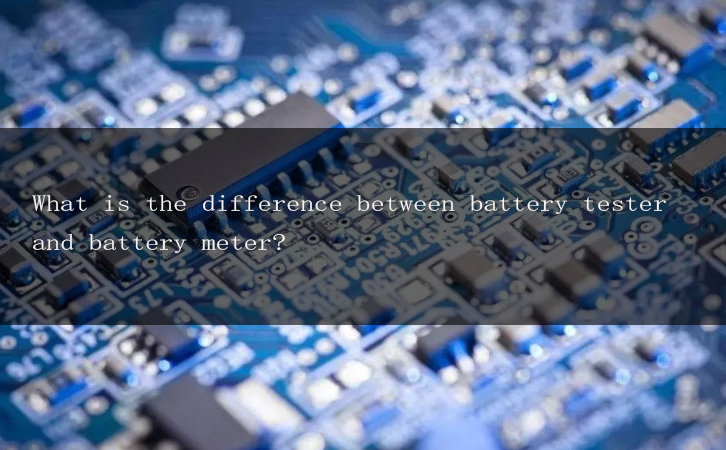Information Center
What is the difference between battery tester and battery meter?
Published:2024-11-11 11:30:51 Author:admin Views:13Battery tester and battery meter serve different purposes in the realm of battery measurement and analysis. Here’s a detailed comparison of the two:

Battery Tester
Purpose:
A battery tester is a device designed to perform comprehensive and real-time testing and management of batteries in power systems.
It is used to assess the health, capacity, and performance of batteries.
Functions:
Can measure battery voltage, current, internal resistance, and capacity.
Often includes functions like battery health analysis, remaining lifespan prediction, and discharge testing.
Some models support online monitoring of battery packs and individual cells.
Applications:
Widely used in the production lines of battery manufacturers for quality control.
Used in maintenance and testing of battery systems in power, communication, petrochemical, financial, railway, and military sectors.
Precision and Accuracy:
Provides highly accurate test results due to advanced testing algorithms and digital signal processing.
Battery Meter
Purpose:
A battery meter, also known as a battery gauge or battery monitor, is used to measure and display the state of charge (SOC) of a battery.
It provides information on the remaining capacity or charge level of the battery.
Functions:
Measures and displays the current charge level of the battery.
May include functions like estimating remaining usage time based on current consumption rates.
Some models can provide alerts when the battery charge is low or when there is a charging issue.
Applications:
Commonly found in electronic devices, vehicles, and renewable energy systems to monitor battery performance.
Used by consumers to track their battery usage and plan charging cycles.
Precision and Accuracy:
Provides a real-time indication of the battery’s charge level, but may not provide the same level of detail or accuracy as a dedicated battery tester.
Key Differences
Purpose and Functionality:
Battery testers are designed for comprehensive testing and analysis of battery performance.
Battery meters are primarily used to measure and display the battery’s state of charge.
Applications:
Battery testers are used in industrial and professional settings for maintenance and quality control.
Battery meters are more common in consumer electronics and vehicles for real-time monitoring.
Precision and Accuracy:
Battery testers offer higher precision and accuracy due to their advanced testing capabilities.
Battery meters provide a general indication of the battery’s charge level, suitable for everyday use but may not be as accurate for detailed analysis.
In summary, while both battery testers and battery meters are useful tools for battery measurement, they serve different purposes and have distinct functionalities. Battery testers are more comprehensive and accurate, suitable for professional and industrial applications, while battery meters are simpler and more user-friendly, suitable for everyday monitoring of battery charge levels.
IntroductionGolf carts serve as vital transportation tools on golf courses, and their performance and reliability are crucial for enhancing player experience an···
The battery pack is the heart of a golf cart, silently powering every acceleration and climb on the green. However, battery degradation often goes unnoticed, mu···
The battery pack is the heart of a golf cart’s power system, yet maintaining it has long been a challenge for technicians. Traditional troubleshooting methods—···
For golf course managers, ensuring smooth and efficient operations is crucial for providing a memorable experience for golfers and maintaining the reputation of···





